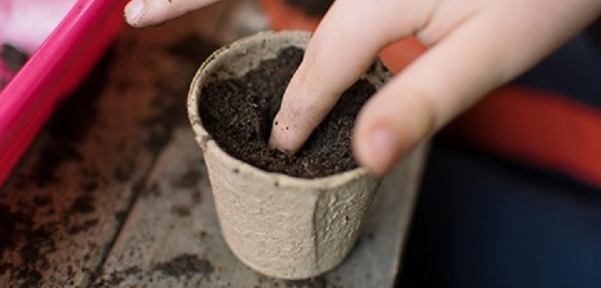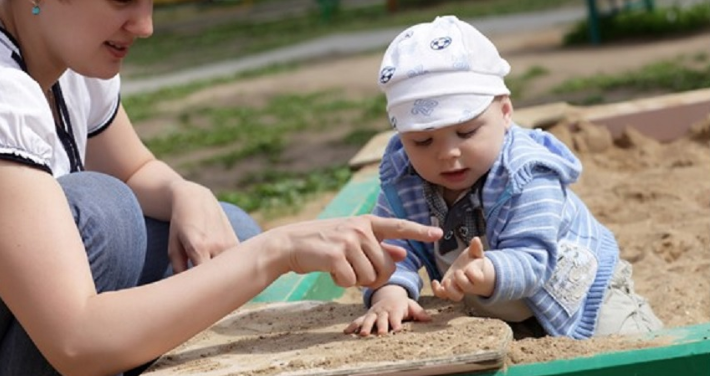This measure evaluates the outdoor environment that allows children to care for living things and appreciate nature. The classroom or center must have outdoor spaces with elements such as natural grass, trees, shrubbery, or dirt, that encourage children to play and interact with nature. The outdoor spaces may include trees, plants, rocks, wooden stumps, wind chimes, animal observation nooks, pebbles, grass, and sand. Artificial plants, rubber mulch, and other manufactured replicas of nature are not included.
Category: Category 4: Indoor and Outdoor Learning Environments
Subcategory: Outdoor Learning Environment
Examples
In this section you will find videos, images, and/or documents that can be used to better understand this measure. These examples can also be used in conversations between mentors, directors, and/or teachers to discuss how the program's current practices compare to these examples.
Photo Example
This outdoor environment provides children with plants and dirt to encourage them to play and interact with nature. Here, they can plant seeds and care for them as they grow into plants.
Age(s): Infant, Toddler
Photo Example
Children can appreciate nature in these outdoor spaces. In one area, they can play and interact with sand; in another area, they can explore landscaping items like pebbles and rocks.
Age(s): Infant, Toddler
Video Example
This video illustrates materials that support exploration of infants in an outdoor learning environment through a collection of labeled photographs. Note: This video has no audio.
Age(s): Infant, Toddler, Preschool, School-age
Practice Opportunities
These resources include tips, strategies, activities, or specific tools related to this measure that programs can put into practice.
Publication
This publication by Penn State Extension discusses the benefits of incorporating natural elements in children’s play and how providers can set it up. It also includes pictures from classrooms as examples.
Age(s): Infant, Toddler, Preschool, School-age



